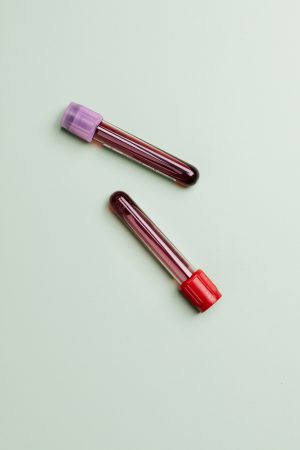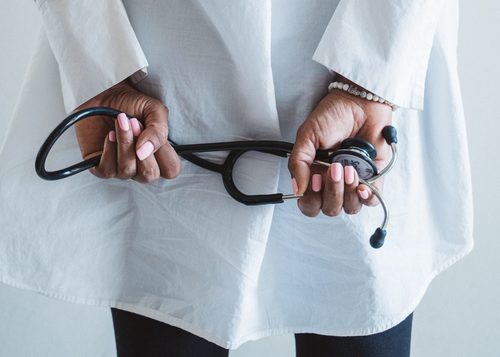Health and wellness are often thought of as good nutrition, exercise and mindful living. But regular screenings for some of our greatest medical issues shouldn’t be left off the list.
Testing the foundations…
Cover your bases with the following screenings:
Pap test
What is it? The Papanicolaou test, most commonly known as the ‘pap smear’ or ‘pap test’ (and named after the inventor of the screening test, Georgios Papanicolaou), works by taking a sample of cells from the cervix and testing those for potentially cancerous cells and other harmful illnesses such as the Human Papilloma Virus (HPV).
Why get tested? Cervical cancer is one of the most common cancers affecting women in South Africa, affecting between 22.8 and 27 per 100 000 women as compared to the global average of 15.8. Since HPV is responsible for 99% of cervical cancers, a co-test is conducted at the same time.
How often? Assuming consistently normal results, women between the ages of 30 and 65 should aim for a pap test every three years, and an HPV screening every five years.
Mammogram
What is it? Mammograms use low-energy X-rays to detect abnormal masses in the breast tissue and, to date, have been considered the go-to for breast cancer detection. Opinions are starting to vary considerably as to the frequency of mammograms since the potential for overdiagnosis and false positives remains high. Today a woman’s risk profile is considered, including genetic markers and family history.
Why get tested? Breast cancer is the leading cancer concern for women in South Africa, and early detection
is crucial in tackling treatment and improving your quality of life.
How often? According to Cansa, a self-examination remains key and should be conducted once a month after your menses. For women over 40, an annual mammogram is recommended, while those 55 and older should go every two years.

Pexels
Bone-density scanning
What is it? Several tests are done to measure bone density, including a DEXA scan (a low-dose X-ray to capture images of your bones), ultrasound and blood tests.
Why get tested? More than one-third of women over the age of 50 and nearly half of those over the age of 70 are affected by osteoporosis. Unfortunately, most women only become aware of it when they start breaking bones later in life.
How often? Go for a baseline test two years after menopause. The National Osteoporosis Foundation of South Africa notes that oestrogen protects against bone loss and the decrease in this hormone puts you at risk.
Colonoscopy
What is it? Using a very thin, flexible tube fitted with a tiny camera, the internal structure of the colon is analysed for polyps or bigger growths.
Why get tested? Colon cancer is not something people generally associate with women, but according to Cansa, colorectal or colon cancer is among the top cancers in South Africa, affecting 1 in 132.
How often? CANSA encourages early screening, starting at the age of 50 and repeating every 10 years, depending on your risk factors.
Get the blood works done
These are the blood tests you should consider chatting to your GP about, and why:

ALSO SEE: 10 things you need to know about blood clots
Lipid panel
What is it? A lipogram test or a lipid panel measures the amount of total cholesterol, low-density cholesterol (LDL), high-density cholesterol (HDL) and triglycerides in your blood.
Why get tested? When there is too much cholesterol in your system, it can build up in your arteries, combining with other substances to form plaque and eventually clogging the free flow of blood. It’s one of the primary risk factors for cardiovascular diseases.
How often? According to the Heart and Stroke Foundation South Africa, all adults should have at least one fasting lipogram from the age of 20. If cholesterol levels are normal, they say, the test should be repeated in a few years. ‘People at risk will have their levels cholesterol levels monitored more frequently by their doctor, most likely every six months.’
At-risk individuals include those with existing cardiovascular disease, diabetes, kidney disease or any other medical conditions that increase the risk of heart disease. But even if you think you’re not at risk, it’s important to get yourself checked since high cholesterol can be genetic and not dependent on lifestyle or dietary choices.
Fasting glucose test
What is it? This test detects the levels of glucose in your blood after at least eight hours of fasting. If you are diabetic or prediabetic (or are experiencing gestational diabetes), the test will indicate higher-than-normal levels of glucose in your bloodstream.
Why get tested? Type 2 diabetes is on the rise in South Africa and is a slow and brutal killer. But early detection means that dietary and lifestyle changes can radically reverse the trajectory of the disease.
How often? Because the risk is so high in South Africa, Diabetes SA suggests getting tested once a year.

Pexels
Blood pressure test
What is it? As blood circulates through the body, it puts pressure on the blood vessels. A blood pressure monitor measures the pressure as the heart contracts and pumps oxygen-rich blood into the blood vessels (systolic reading) and the pressure on the blood vessels when the heart relaxes (diastolic reading). The diastolic reading should always be lower than the systolic, and a ‘normal’ reading is a systolic value of 120 and under, and a diastolic value of less than 80.
Why get it checked? Hypertension, which is what happens when that pressure is too high (140/90), has no symptoms but the complications can be severe to life-threatening, ranging from loss of eyesight to heart attack and stroke. Certain conditions make it imperative to monitor this (e.g. diabetes), but in most other cases, early detection means lifestyle and dietary changes may be enough to prevent chronic medication.
How often? According to Mayo Clinic, those over 40 should get their blood pressure tested every year. This is particularly important for high-risk groups, including Black people, those who suffer high levels of stress, are overweight, or have a history of high blood pressure.
Other check-ups
Full blood count: This can be done through your GP and gives a good overview of your health including any markers linked to heart, kidney and liver health, blood cancers, white and red blood cell count and markers linked to vitamin deficiencies.
Skin checks: These you can do yourself. Get to know your skin so that if anything out of the ordinary pops up, you can book an appointment with your dermatologist immediately.
Dental health: See your dental hygienist every six months at best or at most annually. A good clean is the first step to preventing an expensive dentist visit down the line.
Eye exam: Don’t let vanity keep you from a much-needed visit to the optometrist. Eye health is about much more than needing a set of reading glasses.

Pexels
Where to go
Although there are a lot of tests, many of them can be done through your GP and through one blood screening. If a GP or specialist such as a gynae is not available to you, there are a few places that can help.
Pharmacies: Many South African pharmacies and pharmacy chain stores such as Clicks and Dis-Chem boast basic screening services for diabetes, cholesterol, and blood pressure, among others.
Pop-up screening events: Most of these serious health matters enjoy a dedicated day each year where public health centres across the world aim to raise awareness and ease access to care. Visit the websites for more information about where and how to access these sites. Each of these dedicated sites is crammed with the latest news and information about each condition – free of charge! – and will often include a list of recommended providers.
Clinics: Community clinics and NGOs such as Marie Stopes provide a much-needed service to those who can’t access private healthcare (and even those who can). It may be a bit of a wait, but community clinics offer medical services and screenings, and Marie Stopes offers pap tests, STI screening and breast examinations, among many other great services
Written by Kay Bissett
ALSO SEE:
Feature Image: Pexels

